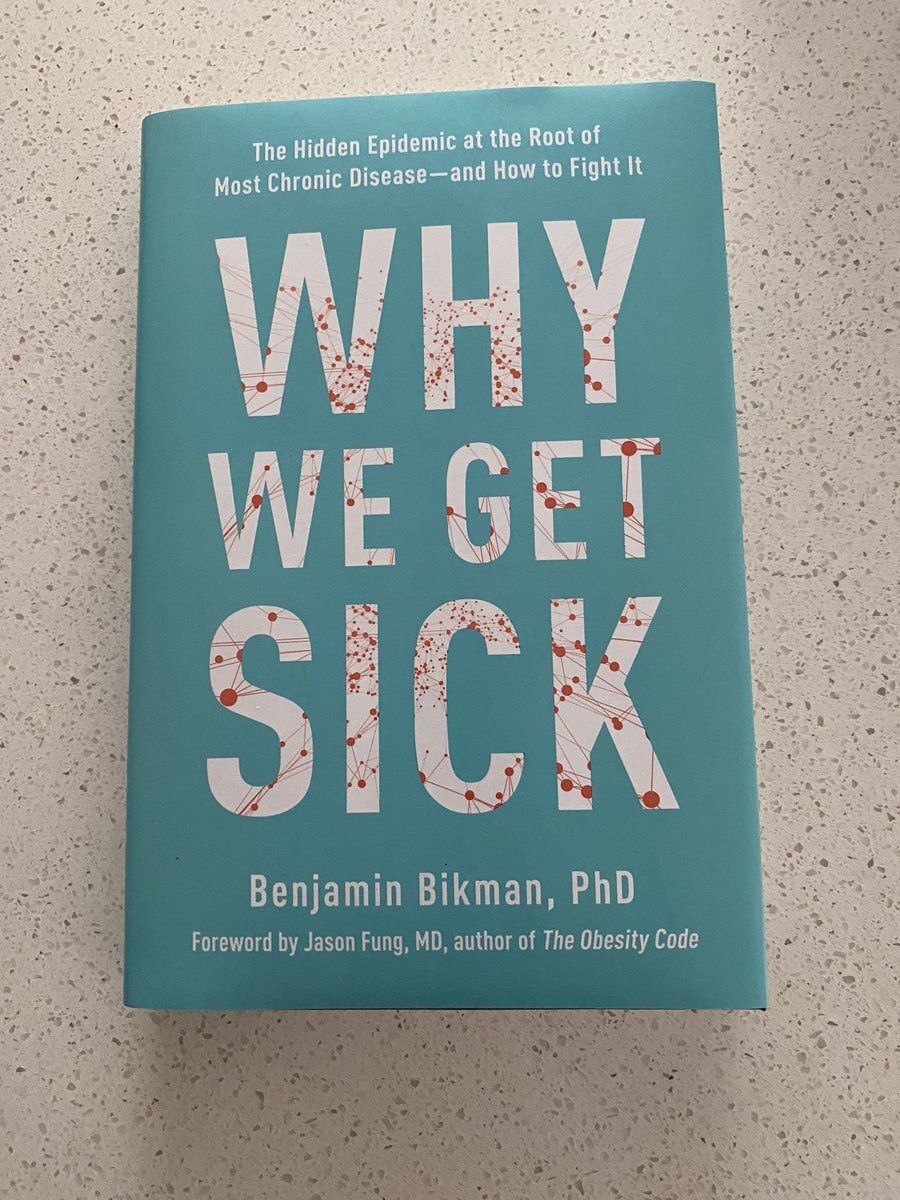
book summary: Why We Get Sick
TL:DR — We get sick because we are insulin resistant. (I saved you $25)
3 out of 5
What is Insulin Resistance and Why does it matter?
One of insulin’s main roles is the regulation of blood sugar, which rises and falls throughout the day in response to our choice of food and stress load. At its simplest, if you eat sugary foods or encounter stress your blood sugar rises, because high amounts of glucose circulating in the blood are dangerous, insulin is produced to drive it into the cell for energy, or store it in fat cells for later use. If this occurrence happens too frequently, there is a reduced response to the hormone insulin. It’s like listening to your friend bitch about the same thing day after day, eventually you get tired of hearing about it and stop listening. This is bad because it can lead to high blood glucose levels, or “hyperglycemia” — the universal sign of diabetes. Even worse, with higher levels of circulating glucose and insulin, come lower levels of brain and sexual function.
What makes us Insulin Resistant in the First Place?
Too much insulin causes insulin resistance — for every 1unit increase in fasting blood insulin, a person can experience a 20% increase in resistance. When a process excessively activated, the body will dampen its response to the excess stimulus in order to reduce the activation (think antibiotics and bacteria resistance). If a cell, whether liver or muscle, is inundated with insulin, it can do nothing to directly reduce the insulin the pancreas is producing, but it can alter itself to ensure that insulin has a smaller effect; becoming resistant. As this occurs in countless cells/tissues throughout the body the prevalence of insulin resistance rises.
How to Fight Insulin Resistance?
Stop eating processed carby foods and switch to whole foods. Additionally, move your body in a way that challenges it daily. As muscle contracts, it's able to take in glucose from the blood without using insulin, reducing the burden overall. Because movement enables this insulin-independent process, our blood insulin naturally lowers during and shortly after exercise.
Carbs make you fat, change my mind…
Whenever anyone makes a claim, ALWAYS ask if it makes sense from an evolutionary perspective.
Most living things time their days with an internal clock that is synchronized by external cues (e.g., light and dark cycles). The sun is one constant that has been around forever, therefore our circadian rhythms developed to coincide with these light and dark cycles. This means that our biology is a product of the cyclical nature of the sun. This is evidenced by the light-sensitive receptors built into the cells of our eyes, skin, blood, and bones.
Who cares?
WELL, because our biology is indelibly linked to the sun, it would also be fair to reason that it plays a role in our health as well. And that’s all I really care about here.
Before industrialized society, we had always been at the whim of nature and the environment that the seasonal orbit and rotation of the sun provided; AKA seasons. We had always “feasted” in the summertime to endure the “famine” that always followed. Your body instinctually know that the long days of summer are going to be followed by the cold days of winter, and that means no food. Summertime means carbs are plentiful, as they literally grow on trees. Your body craves them so you can store fat to keep you alive for the impending winter where food is scarce.
Here’s how it works:
Long hours of light signal summertime
Summertime means carbohydrates are plentiful and should be eaten to excess
Eaten to excess causes accumulation of fat (and lowers freezing temperature of cellular structures) so that you can survive the winter
Fun fact: Types 2 Diabetes is a survival mechanism, but in a world where winter never comes it becomes a disease. The never-ending artificial light, coupled with chronic stress jacks up our hormonal cascade and registers as the long days of summer.
In the context of modernity, the effects of constant stress and artificial light adds up pretty quickly. We live in a fear-based 24-hour news cycle that creates an environment where we live under constant threat of war, rape, pandemic, getting fat, etc. This stress is heralded by cortisol which drives us to consume carbohydrates so we can attempt to reach homeostasis by balancing our cortisol with the insulin response. All the while, our circadian rhythmicity becomes disrupted because we’re staring at blue-lit screens all day, telling our brain that it’s daytime, signaling the long days of summer. And because summer comes before winter, our body’s “know” we need to eat so that we can have enough energy storage to survive the winter. BUT WINTER NEVER COMES because everything in our environment is signaling that it is summertime and we need to eat.
While living in endless summer may seem like a great thing in theory, it completely throws off our biology. There is no day without night, there is no ying without yang. Life is about balance, without it comes dis- ease.